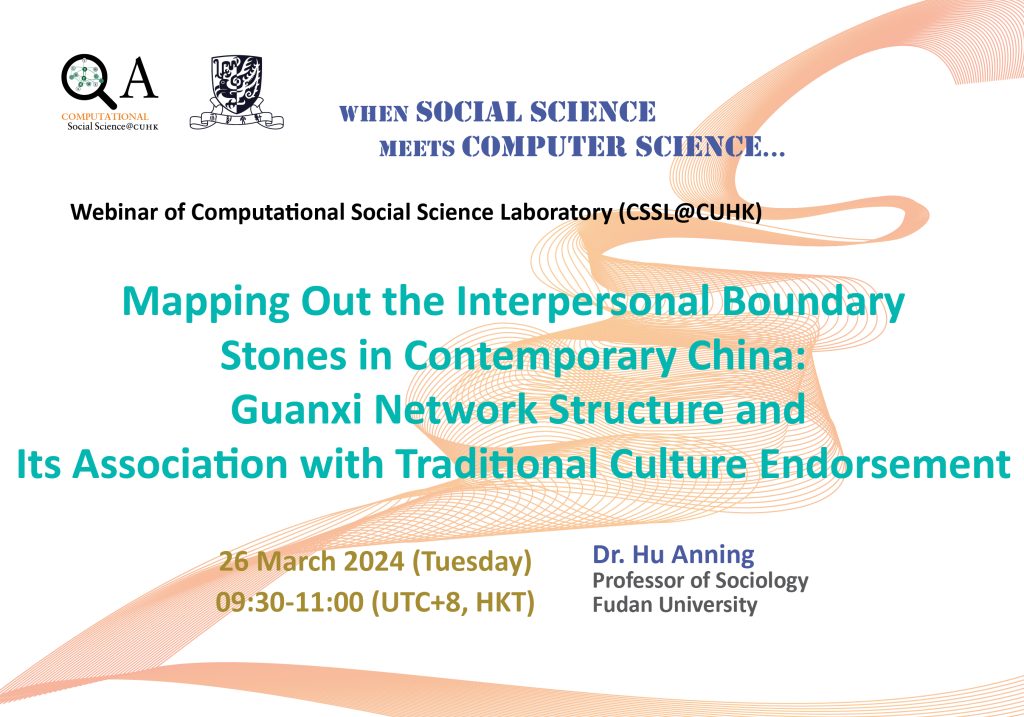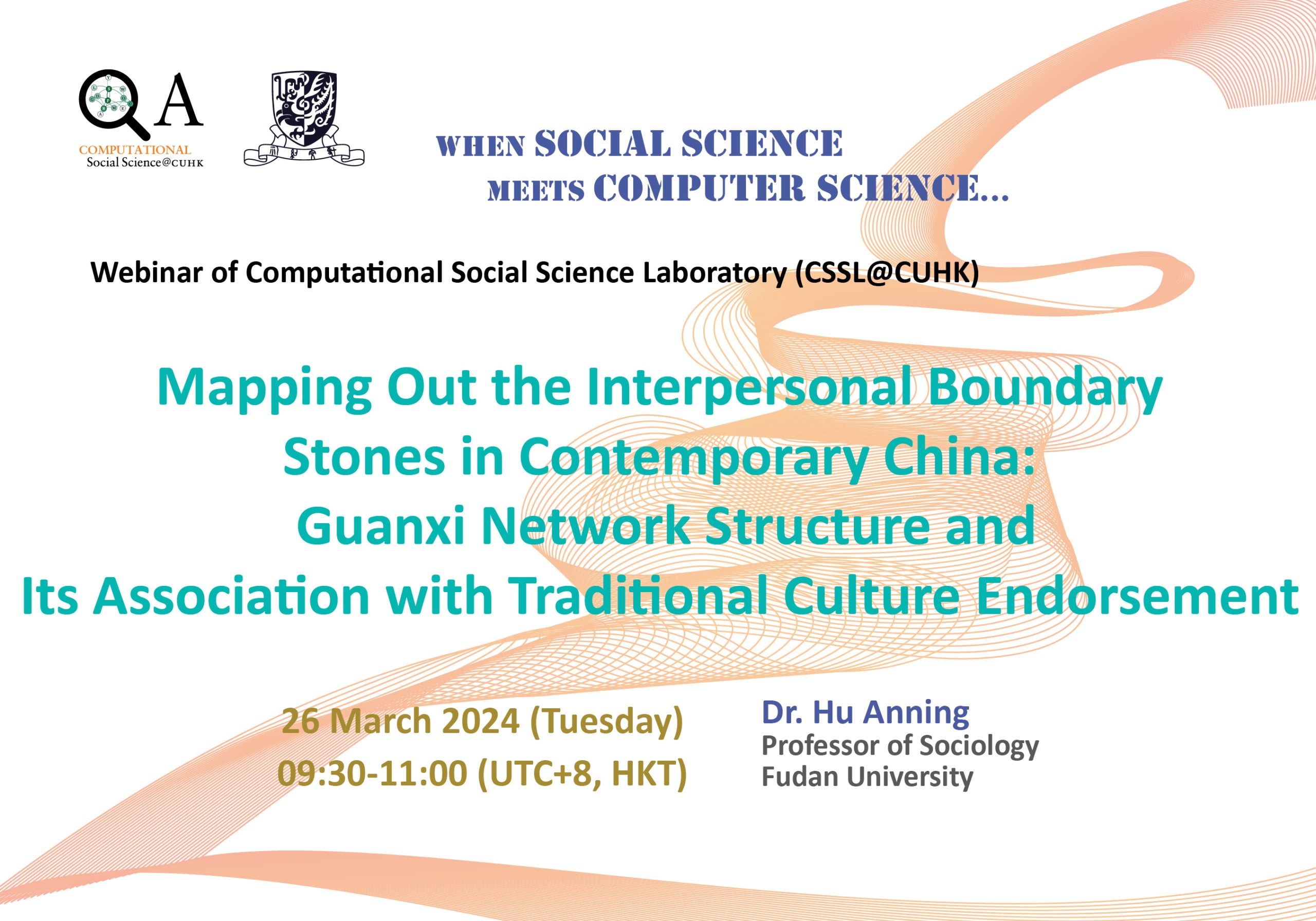
Mapping Out the Interpersonal Boundary Stones in Contemporary China: Guanxi Network Structure and Its Association with Traditional Culture Endorsement
Abstract:

Guanxi research would benefit from an empirical portrayal of holistic guanxi network structures and consideration of sociologically meaningful antecedents such as one’s cultural value endorsement. This study, drawing on the reported trustworthiness of a rich array of referees in one’s guanxi network collected from the Traditional Culture and Cognitive Pattern Survey, identifies two types of guanxi network structures in contemporary China: one is featured by the binary distinction between family and non-family referees, and the other displays a fourfold classification scheme, respectively concerning parents, nuclear family members (children and spouse), other relatives and close friends, and acquaintances. Furthermore, traditional culture endorsement is positively correlated with the likelihood of being subject to the binary classification scheme, while some counter social forces, such as the establishment of fictive kinship relationships and the subjective differentiation of family members, encourage one to lean toward the more fine-grained fourfold guanxi network partitioning.
Speaker:
Dr. Hu Anning
Professor of Sociology
Fudan University



